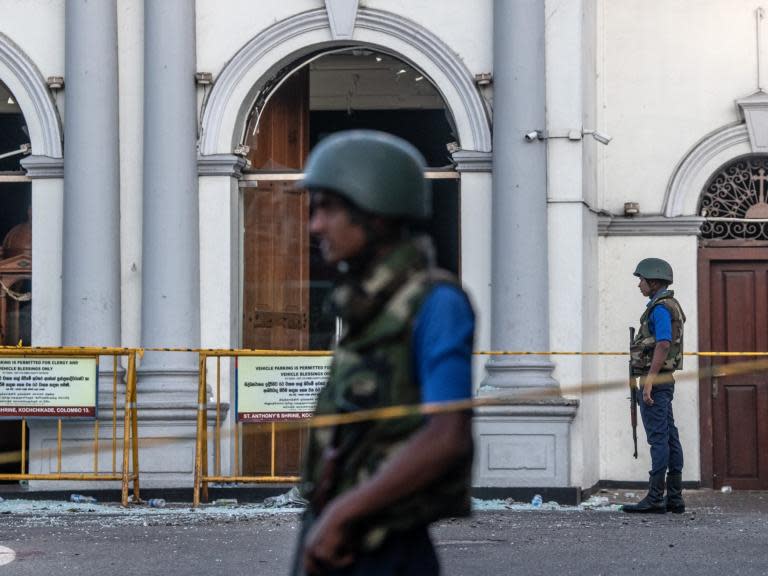Sri Lanka minister claims church bombings were 'retaliation for Christchurch mosque shootings'
Sri Lanka‘s defence minister has claimed a series of deadly bombings on churches and hotels was carried out “in retaliation” for shootings at mosques in the New Zealand city of Christchurch.
Ruwan Wijewardene said two small domestic Islamist groups were believed to have carried out the Easter Sunday attacks, which killed at least 321 people and wounded 500 others.
“The preliminary investigations have revealed that what happened in Sri Lanka was in retaliation for the attack against Muslims in Christchurch,” he told parliament, without citing any evidence or elaborating.
The junior minister said two Sri Lankan Islamist groups - National Thowheed Jamaat and Jammiyathul Millathu Ibrahim – were responsible for the blasts during Easter church services and at high-end hotels.
Prime minister Ranil Wickremesinghe told parliament investigators were also looking into foreign links. He said "it is possible" the bombers were motivated by the Christchurch massacre, in which 50 Muslims were shot dead by an alleged white supremacist gunman.
Experts have said the scale of the Sri Lanka bombings – detonated at eight locations – would have required months of careful planning, suggesting the attackers had international help.
US intelligence sources said the attacks bore some of the hallmarks of Isis, although they were cautious because the jihadist group had not claimed responsibility.
Isis is usually quick to claim responsibility for or links to attacks against foreign targets or religious groups.
Al-Qaeda last month called on Muslims to take revenge for the Christchurch shootings, but it said they should avoid targeting places of worship, according to Site Intelligence Group, which monitors online extremist content.
Rita Katz, Site’s chief executive, said aspects of the Sri Lanka bombings “increasingly suggest Isis involvement”.
A Syrian man is among 40 people being questioned over the attacks.
“He was arrested after the interrogation of local suspects,” a Sri Lankan government source told Reuters.
Tuesday was declared a national day of mourning in Sri Lanka and the funerals of some of the victims were held.
Sri Lankan authorities are facing growing pressure over their failure to prevent the bombings, with intelligence agencies having been warned of a possible attack by National Thawheed Jama'ut.
The small and little-known group has previously vandalised Buddhist statues and in 2016 one of its leaders was arrested for inciting racism, but it had never previously carried out a major attack.
The first six attacks - on three churches and three luxury hotels - came within 20 minutes on Sunday morning. Two more explosions - at a downmarket hotel and a house in a suburb of the capital, Colombo - came in the early afternoon.
Most of the dead and wounded were Sri Lankans. British, Australian, Turkish, Indian, Chinese, Danish, Dutch and Portuguese nationals were among the 38 foreigners killed.
Forty-five children died in the blasts, said the UN Children's Fund.

 Yahoo News
Yahoo News 

